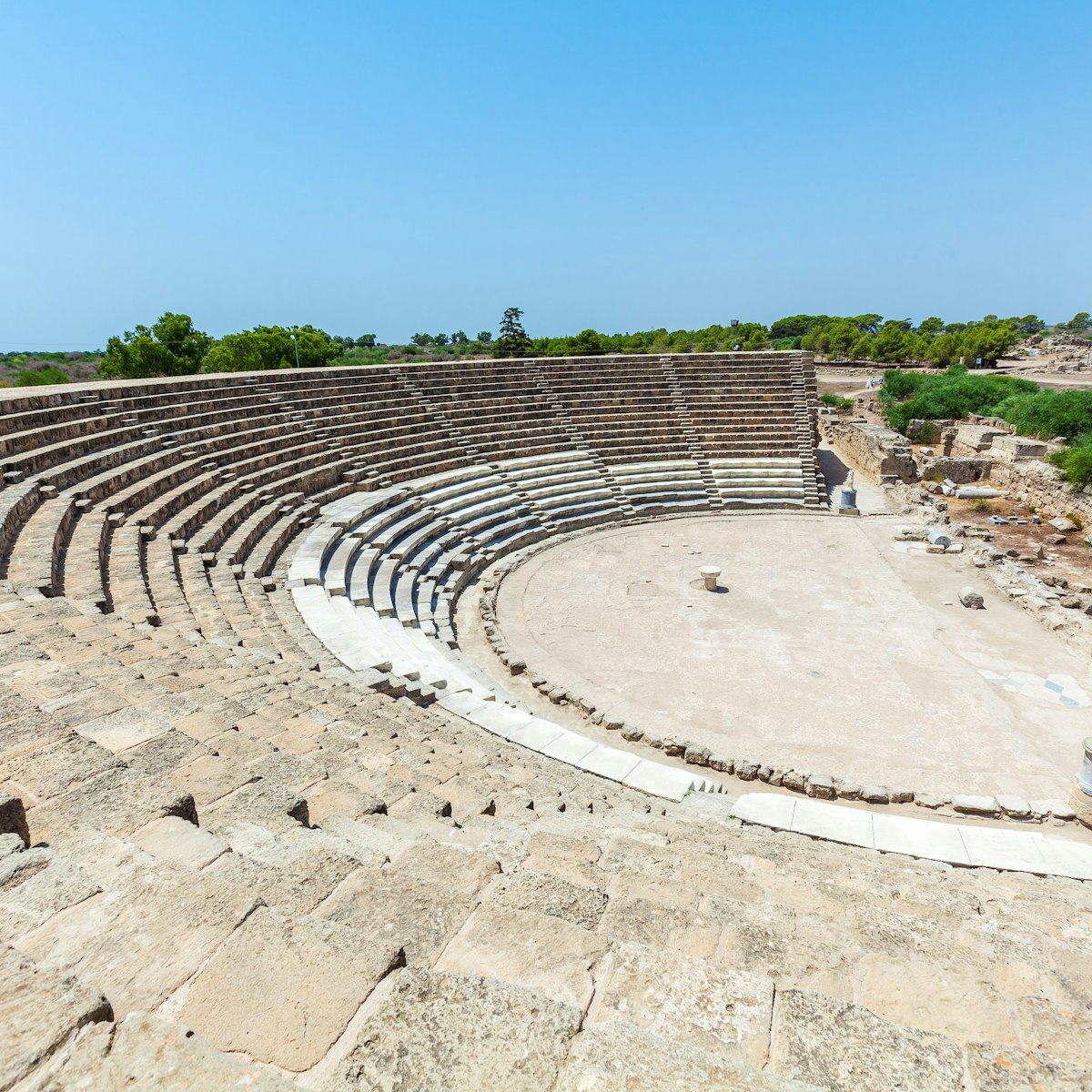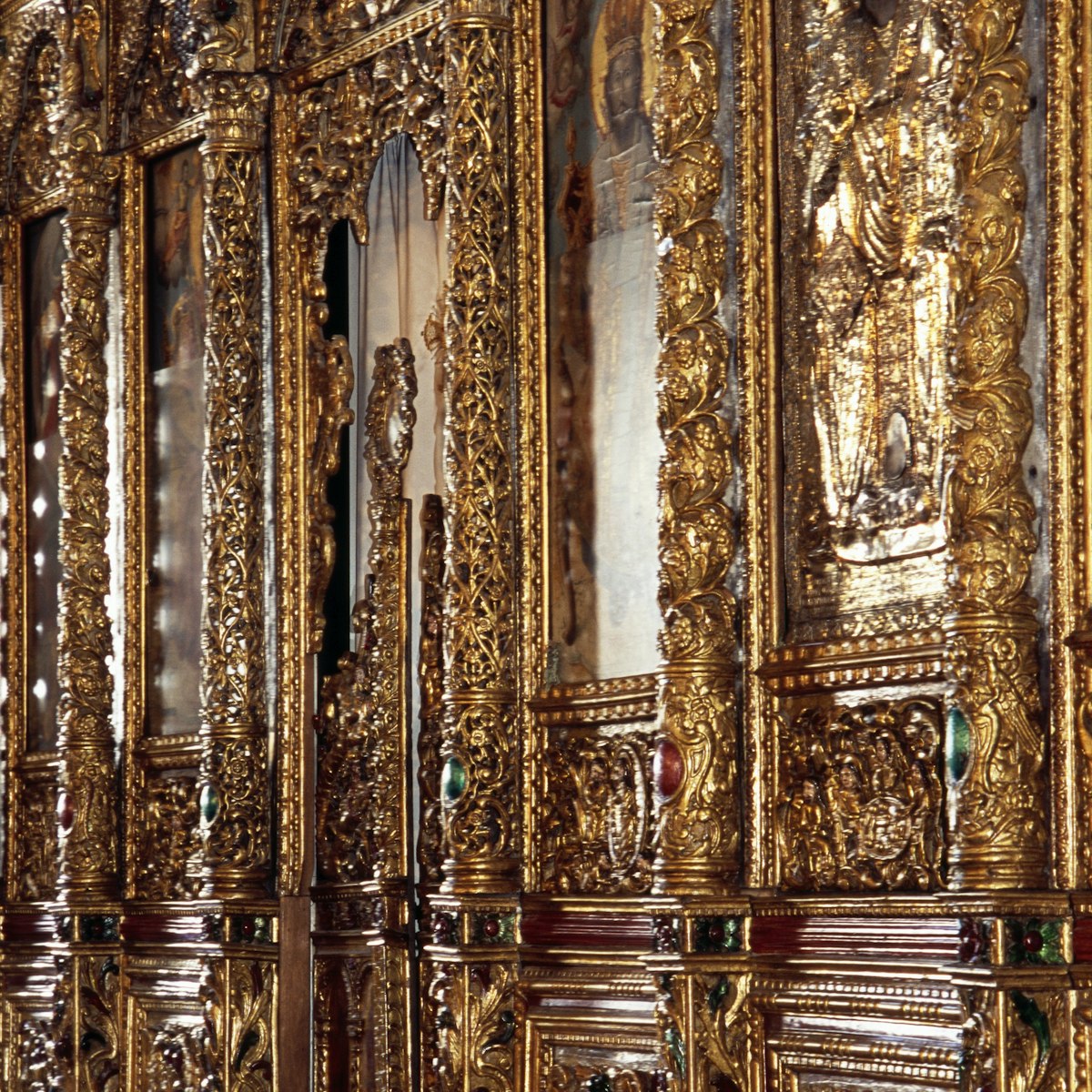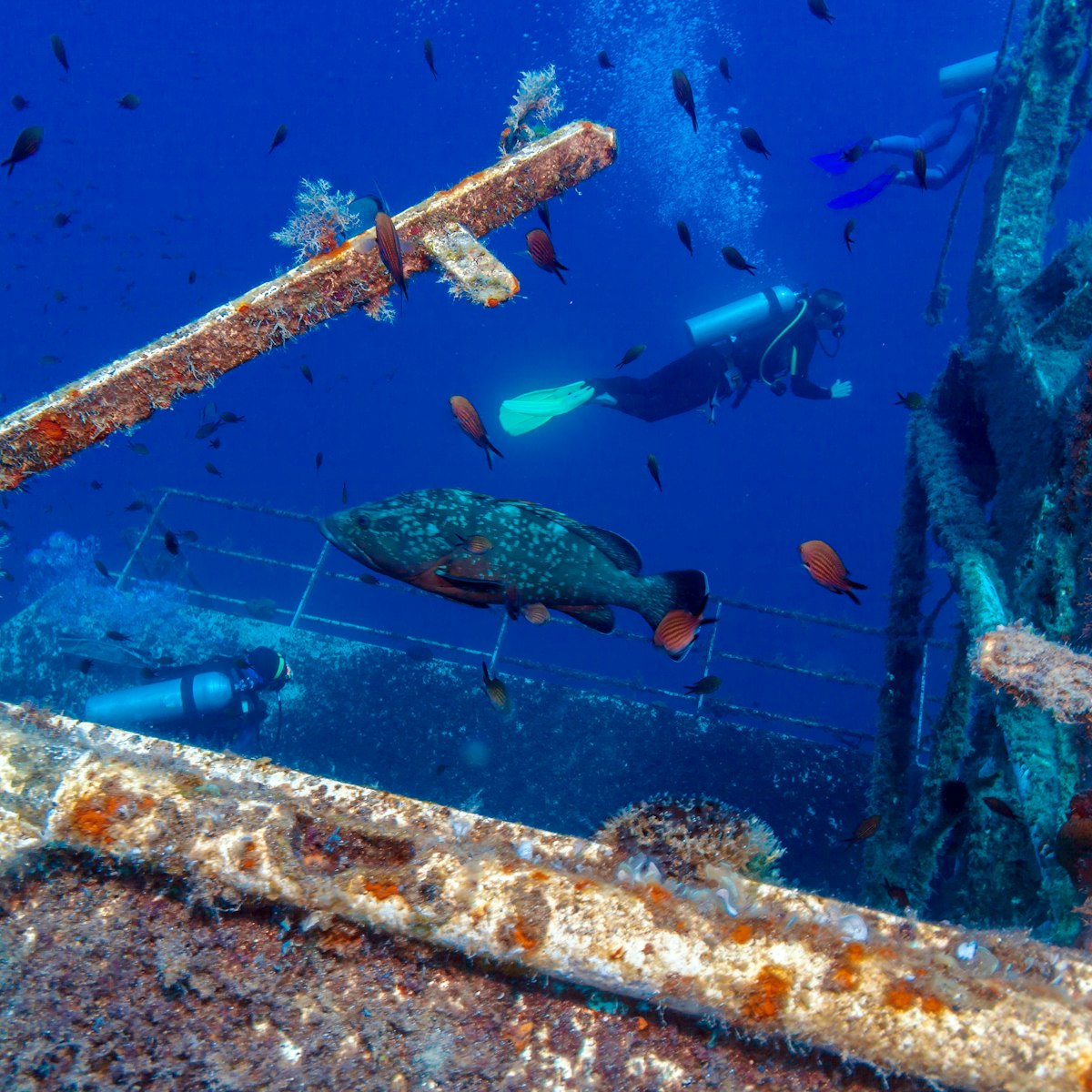During the siege of Famagusta, Ottoman hero Canbulat Bey reportedly charged his horse at a gruesome medieval siege device consisting of a spiked wheel. He destroyed the device, himself and his horse in the process but inspired the Ottomans to conquer the Venetian-held city.
The rooms around his tomb house a small museum with a few rather sad and unloved exhibits of pottery and some hilariously bad reproductions of paintings of Famagusta, along with a few portraits of Ottoman generals.




